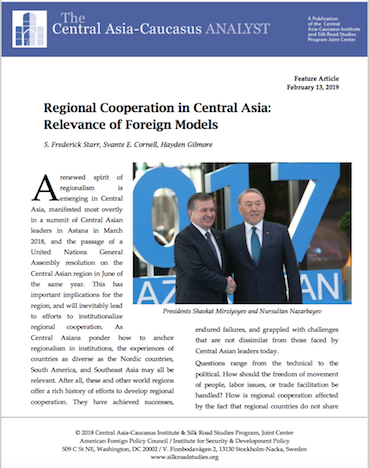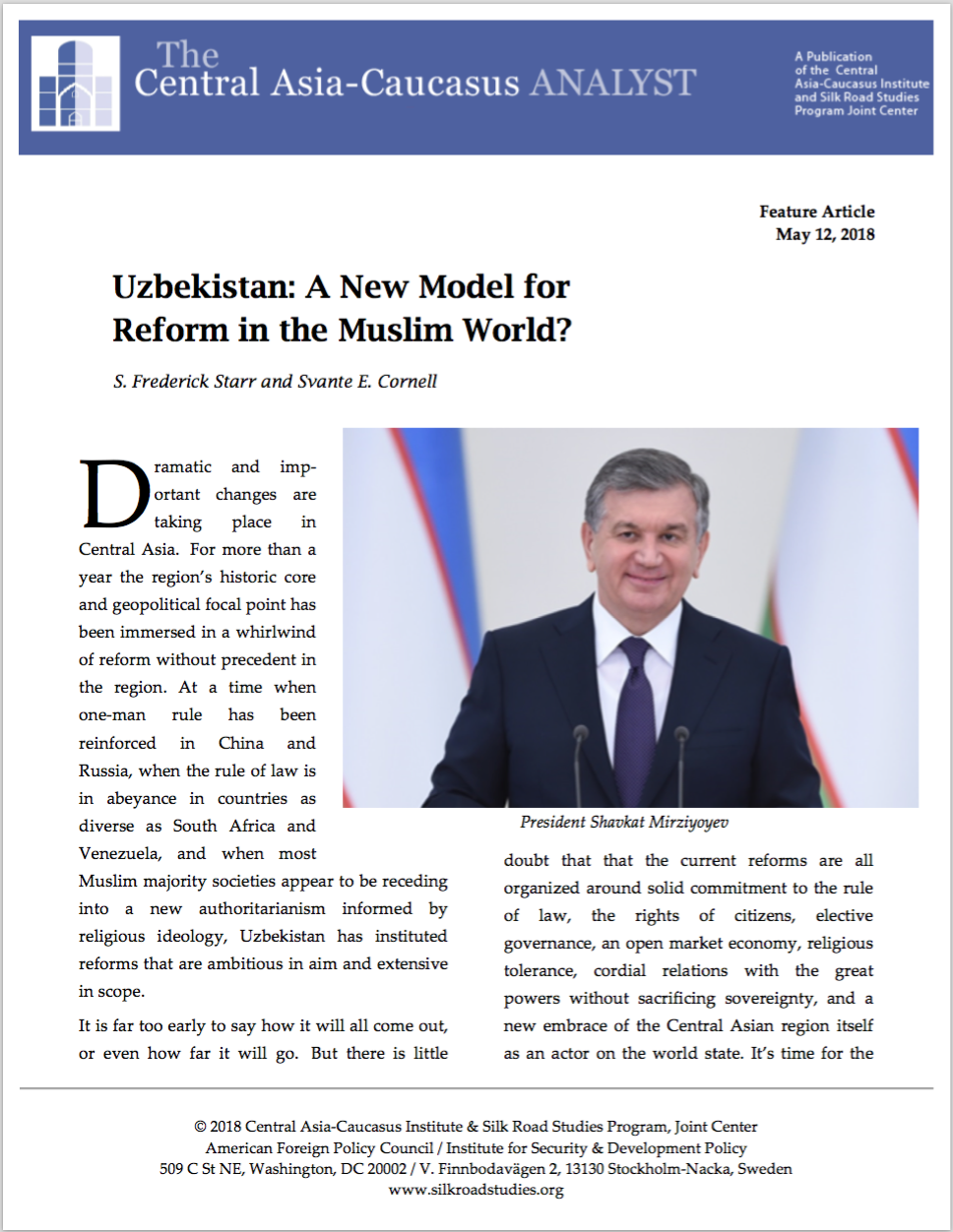Regional Cooperation in Central Asia: Relevance of Foreign Models
Regional Cooperation in Central Asia: Relevance of Foreign Models
A renewed spirit of regionalism is emerging in Central Asia, manifested most overtly in a summit of Central Asian leaders in Astana in March 2018, and the passage of a United Nations General Assembly resolution on the Central Asian region in June of the same year. This has important implications for the region, and will inevitably lead to efforts to institutionalize regional cooperation. As Central Asians ponder how to anchor regionalism in institutions, the experiences of countries as diverse as the Nordic countries, South America, and Southeast Asia may all be relevant. After all, these and other world regions offer a rich history of efforts to develop regional cooperation. They have achieved successes, endured failures, and grappled with challenges that are not dissimilar from those faced by Central Asian leaders today.
Questions range from the technical to the political. How should the freedom of movement of people, labor issues, or trade facilitation be handled? How is regional cooperation affected by the fact that regional countries do not share the same patterns of membership in international organizations? How deeply institutionalized should regional structures be? How do they relate to outside powers, particularly large ones and potential hegemons? These questions are the focus of the following sections.
Uzbekistan-Tajikistan Relations: The Long Way to Strategic Partnership
By Farkhod Tolipov
September 18, 2018, the CACI Analyst
Uzbekistan’s President Shavkat Mirziyoev’s state visit to Tajikistan on March 9-10, 2018, represented a
“closure of the circle” in a series of trips since Mirziyoev was elected and proclaimed Central Asia as the new
foreign policy priority for Uzbekistan. The visit marked the start of a thaw between these states. On August
17-18, Tajikistan’s President Emomali Rakhmon made the first Tajik state visit to Uzbekistan in the entire
period since independence. The two Presidents signed a long-awaited Treaty on Strategic Partnership,
implying that Uzbekistan is now completely surrounded by strategic partners in Central Asia.
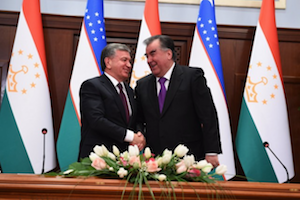
UNGA Adopts Resolution on Strengthening Cooperation in Central Asia
By Batir Tursunov
September 5, 2018, the CACI Analyst
At its June 22, 2018, plenary session, the UN General Assembly adopted a resolution on “Strengthening regional and international cooperation to ensure peace, stability and sustainable development in the Central Asian Region.” According to Uzbekistan’s Foreign Ministry, all UN members unanimously supported the draft document, developed by Uzbekistan along with other Central Asian states.
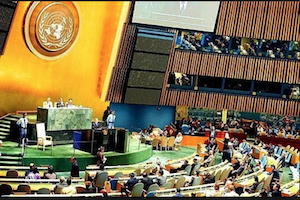
Taking the U.S.-Uzbekistan Relationship to the Next Level: Mirziyoyev's Historic Visit
By Sanjar Valiyev
June 11, 2018, the CACI Analyst
President Shavkat Mirziyoyev’s visit to Washington was historic, being the first official visit of an Uzbek president since 2002. Mirziyoyev’s reception, and the breadth and width of agreements signed, constitute an acknowledgement of the reform process in Uzbekistan, as well as of the country’s newfound regional role and in particular its constructive approach to resolving the problem of Afghanistan. Washington’s engagement in these efforts will further improve the prospects of success in Uzbekistan’s domestic reforms and regional initiatives.
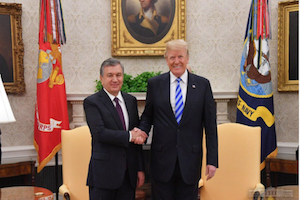
Uzbekistan: A New Model for Reform in the Muslim World?
Uzbekistan: A New Model for Reform in the Muslim World?
Dramatic and important changes are taking place in Central Asia. For more than a year the region’s historic core and geopolitical focal point has been immersed in a whirlwind of reform without precedent in the region. At a time when one-man rule has been reinforced in China and Russia, when the rule of law is in abeyance in countries as diverse as South Africa and Venezuela, and when most Muslim majority societies appear to be receding into a new authoritarianism informed by religious ideology, Uzbekistan has instituted reforms that are ambitious in aim and extensive in scope.
It is far too early to say how it will all come out, or even how far it will go. But there is little doubt that that the current reforms are all organized around solid commitment to the rule of law, the rights of citizens, elective governance, an open market economy, religious tolerance, cordial relations with the great powers without sacrificing sovereignty, and a new embrace of the Central Asian region itself as an actor on the world state. It’s time for the world to take stock of this startling development.

